- Backup
- Acronis True Image
- 04 September 2025 at 07:44 UTC
-

- 1/2
Previously, we showed you how to back up your smartphone data via Acronis Mobile and Acronis Cyber Protect Home Office (True Image).
In this new tutorial, you will see how to back up your smartphone data to your computer by encrypting the backup that will be created on your computer.
This prevents unauthorized access to it (whether from your smartphone or from your computer).
In both cases, the password that you define to protect (encrypt) your backup will be requested each time you try to access the data in your backup, as well as when you want to restore the data from one of your mobile backups.
Important : the data will be encrypted using the AES 256 algorithm and the password that you choose.
This means that your backup data will be unreadable without this password and it is impossible to delete or recover this password in case you forget it.
- Configure the backup source on your PC
- Create an encrypted backup of your smartphone data via Acronis Mobile to your computer
- Open the encrypted mobile backup on your PC (via Acronis Cyber Protect Home Office (True Image))
- Open encrypted mobile backup on your smartphone (with pre-saved password)
- Open encrypted mobile backup on your smartphone (with password prompt)
- Restore all data from your smartphone via Acronis Mobile
1. Configure the backup source on your PC
Before you start, please note that all mobile backups created via Acronis Cyber Protect Home Office (True Image) will be stored in the same location.
More precisely, in the folder "C:\Acronis Mobile Backup Data".
If you want to store your mobile backups elsewhere, then go to the "Settings" section of Acronis Cyber Protect Home Office (True Image).
Then, click the "Change" button in the "Mobile backup location" section.
Warning : you can only store your mobile backups on internal drives (whether it is an SSD or an internal hard drive).
It is not possible to store mobile backups on an external hard drive.
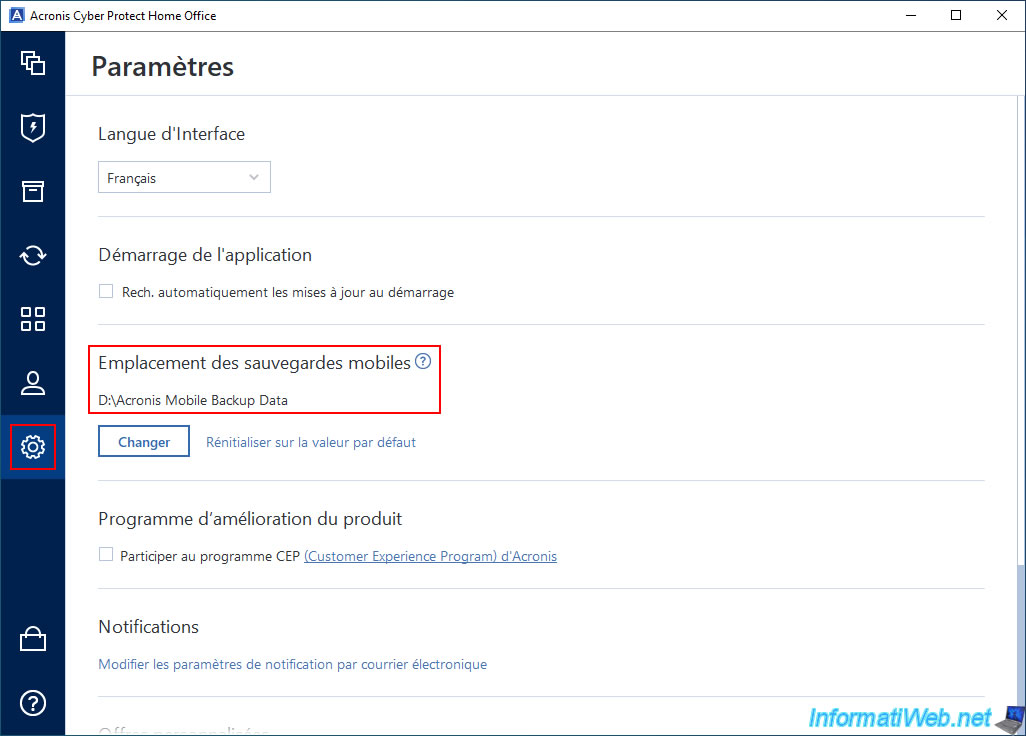
Once the desired destination folder for mobile backups is selected in Acronis Cyber Protect Home Office (True Image) settings, go to the "Backup" section.
Then, click the left rectangle to change the backup source.
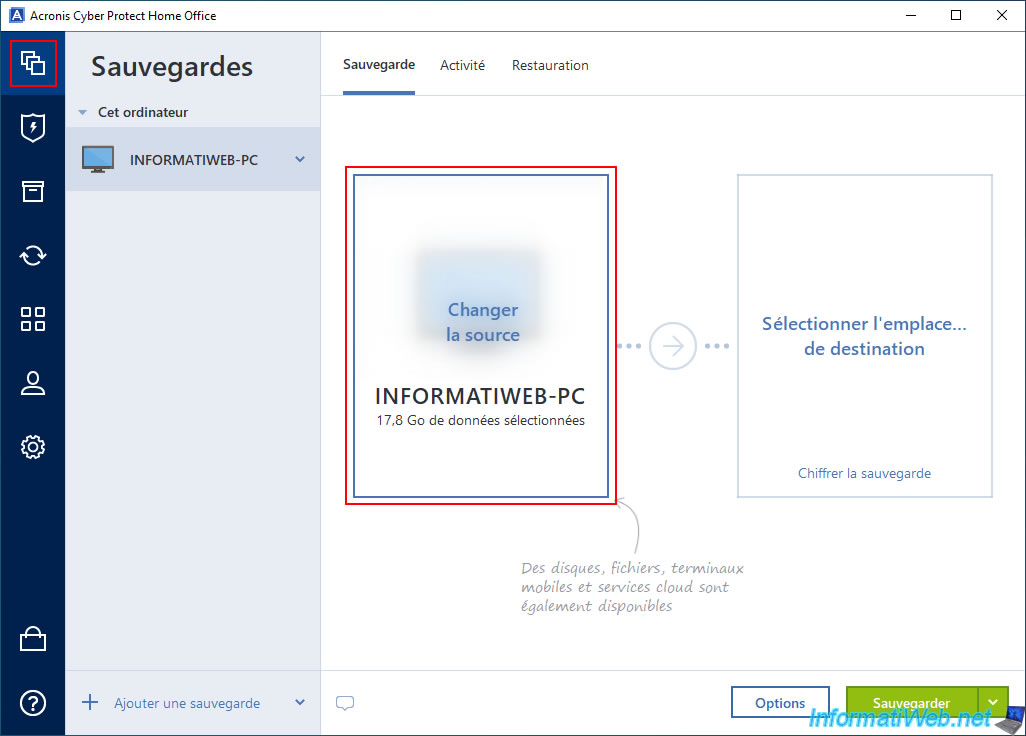
Then, select "Mobile Terminal" for the backup source.
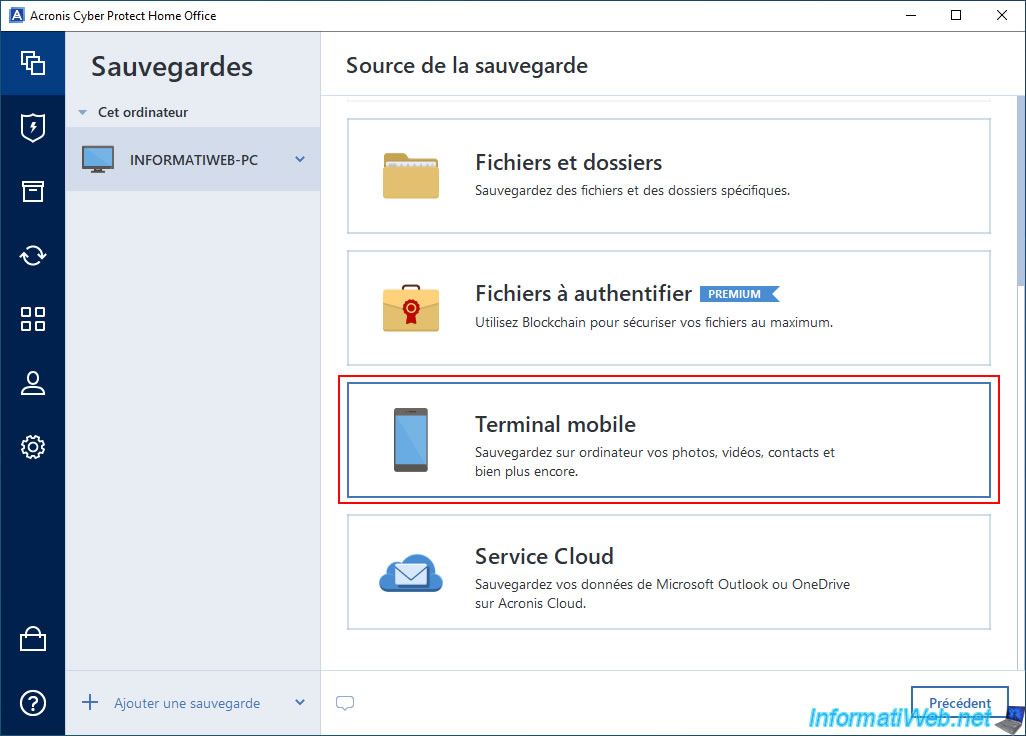
As Acronis Cyber Protect Home Office (True Image) tells you, Acronis Mobile must be installed on your smartphone to be able to back up data from your smartphone to your computer.
If necessary, refer to our previous tutorial mentioned in the introduction of this tutorial.
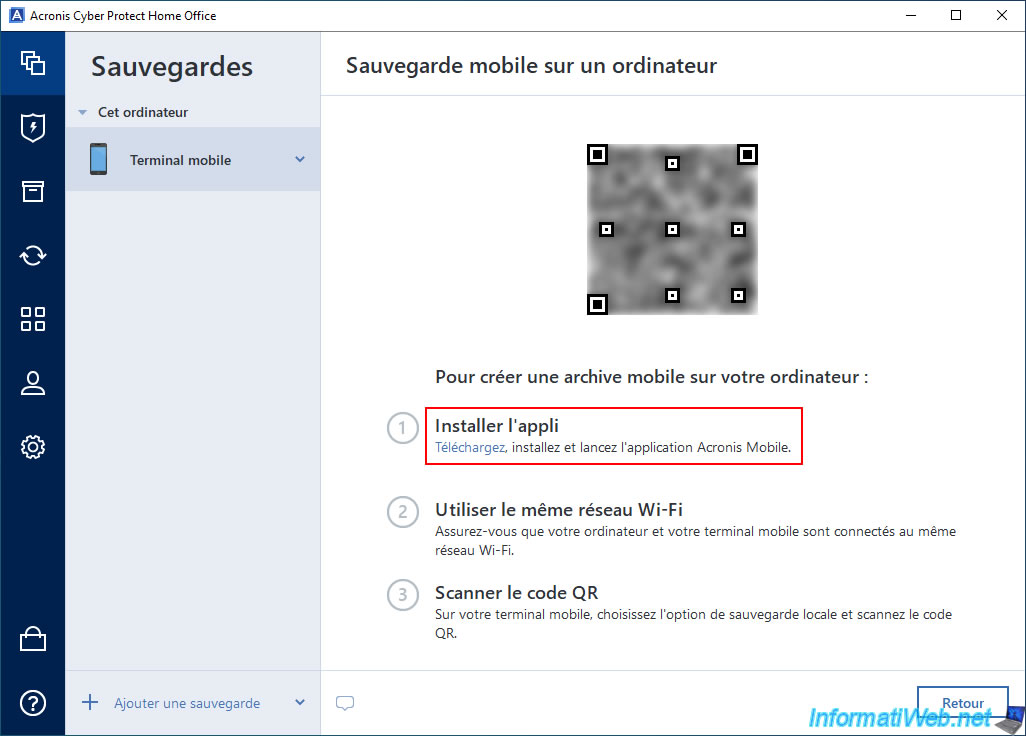
2. Create an encrypted backup of your smartphone data via Acronis Mobile to your computer
On your smartphone, launch the "Acronis Mobile" application and press the "Configure" button (in the "Backups" tab).

Choose the local destination "Computer".

Then, press the "Scan QR code" button.
Note: your smartphone must be connected to the same network as your computer for this to work.
So, first make sure that your smartphone is connected to Wi-Fi and not to mobile data (3G, 4G, ...).
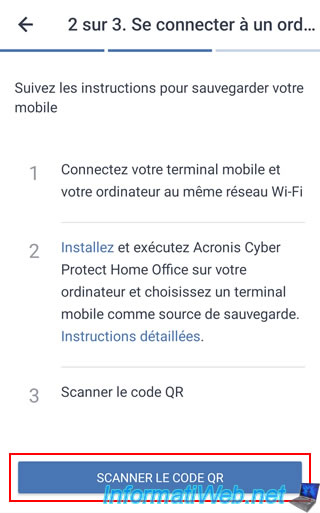
Scan the QR code displayed on your computer with your smartphone.

Press the "Set up a new backup" button that appears.

At the bottom of the screen, enable the "Encrypt backup" option.

Acronis Mobile will automatically show you an additional step called "Backup Encryption".
Type the password you want to use to encrypt this mobile backup.

Then, press the "Encrypt" button.
Note: the "Save password" box will allow you to access your mobile backup data, as well as restore data from your backups without having to type the password each time.
However, this is only valid for the Acronis Mobile application installed on your smartphone. Since the backup is still encrypted, if you try to access it from your computer, this password will be requested by Acronis Cyber Protect Home Office (True Image).

As expected, the "Encrypt Backup" option is enabled.
Press the "Backup" button.

The backup starts.

On your computer, you will see the message "Backup in progress" appear in Acronis Cyber Protect Home Office (True Image).
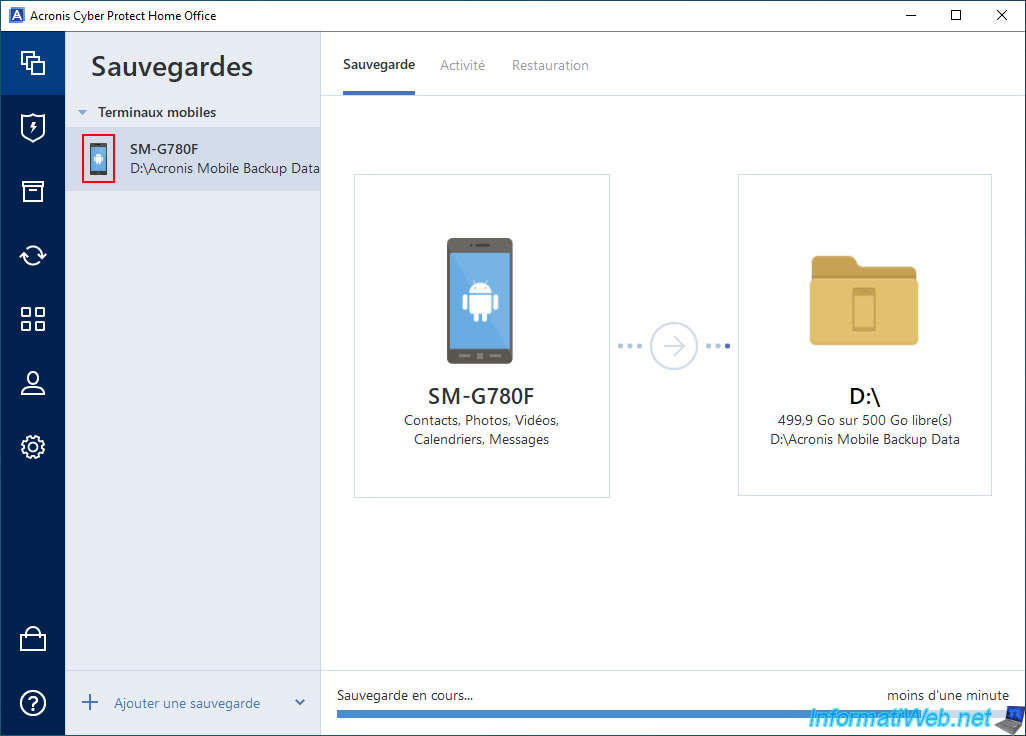
Once the backup is complete, you will see the status "Backed up successfully" appear in Acronis Mobile (on your smartphone), as well as the word "Encrypted" at the bottom left of the backup.
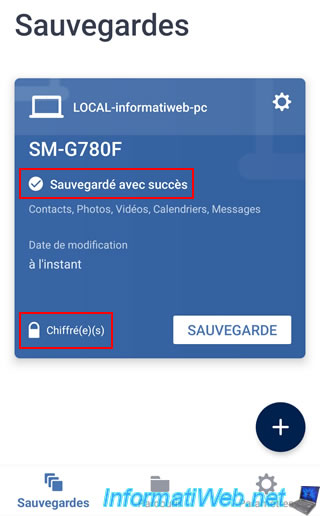
On your computer, you will see a "V" appear on a green circle, as well as the status "Encrypted".
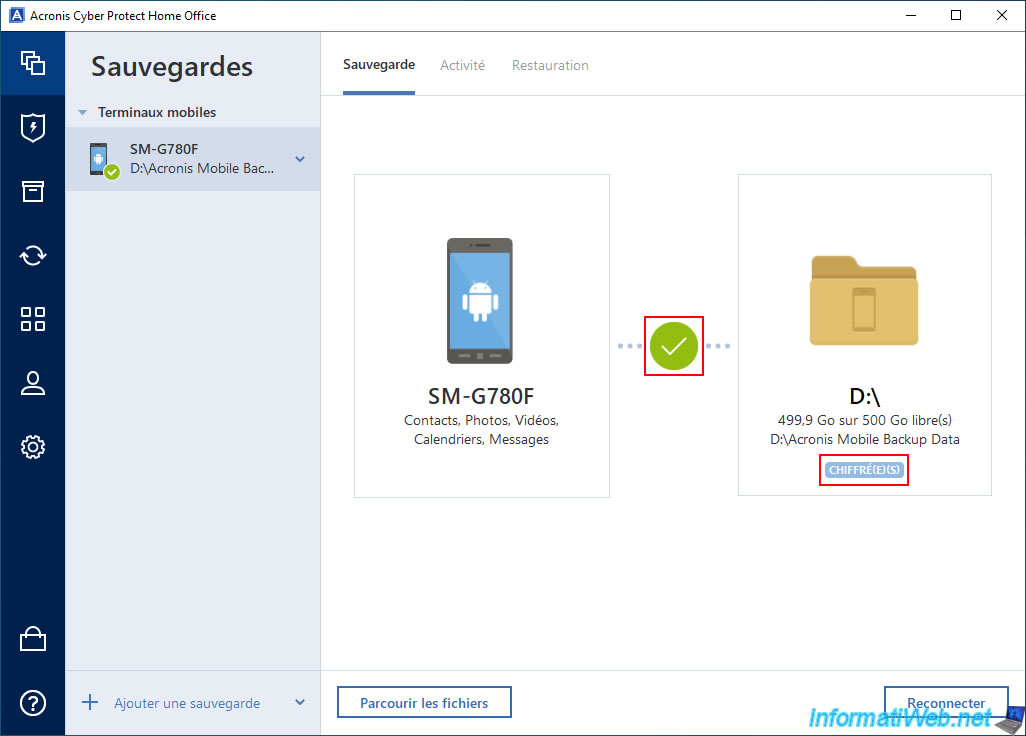
Share this tutorial
To see also
-

Backup 9/26/2012
Acronis - Restore a backup on a different hardware
-

Backup 9/1/2025
Acronis True Image - Backing up your smartphone to your PC
-

Backup 9/22/2025
Acronis True Image - Backup your Microsoft account to Acronis Cloud
-

Backup 7/21/2025
Acronis True Image - Create backups (via the version chain scheme)

You must be logged in to post a comment